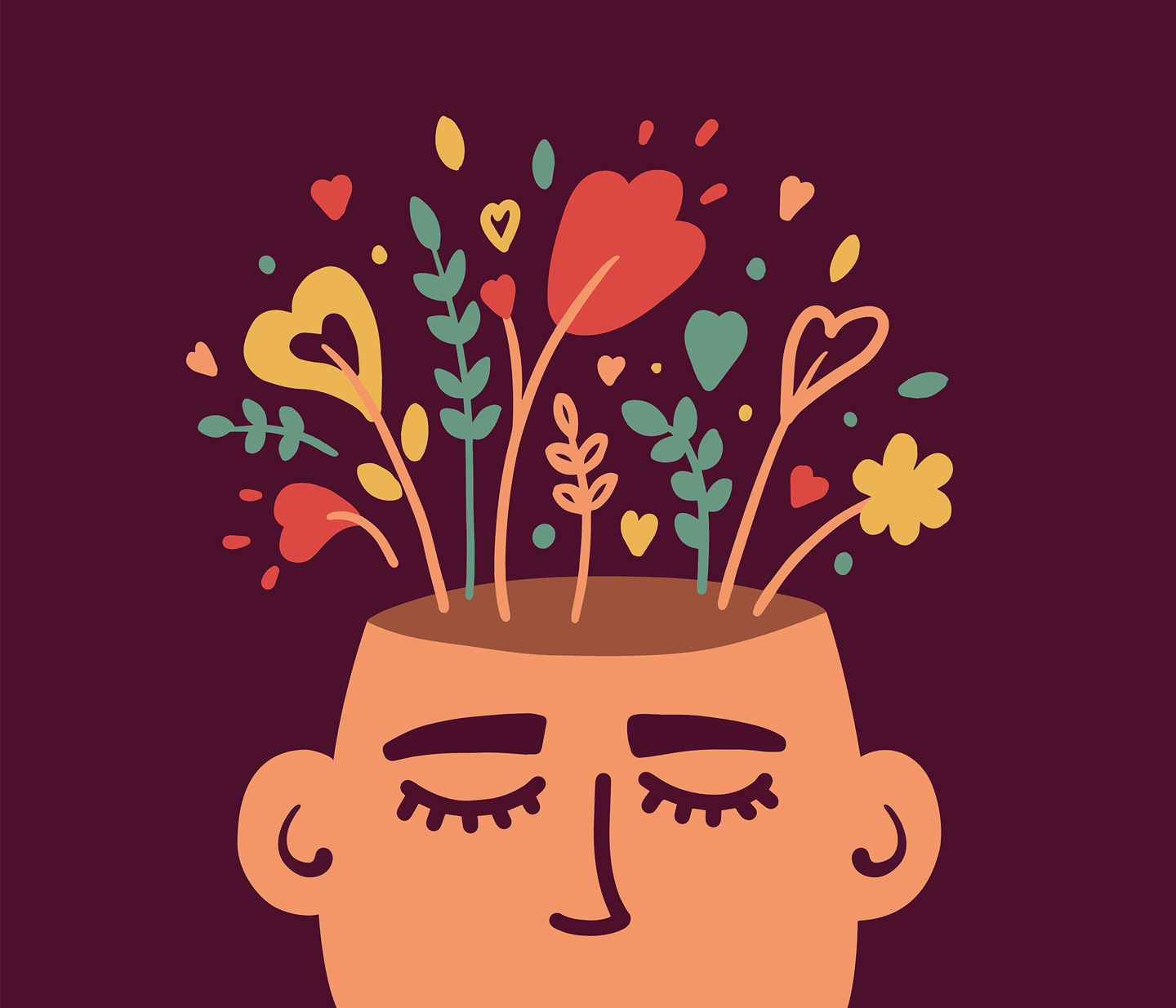
Taking Care of Each Other
The pandemic has made mental well-being a campus priority
Avery Nixon was looking forward to living on campus and sharing a room decorated into a dream space with a best friend. But the experience to start her sophomore year wasn't at all as she expected. A change in her medication triggered the depression she has been living with for years. She cried every day, and in a column she wrote for the student newspaper, she confessed, "It feels like I'm just waiting for the day I crack and lose myself for good."
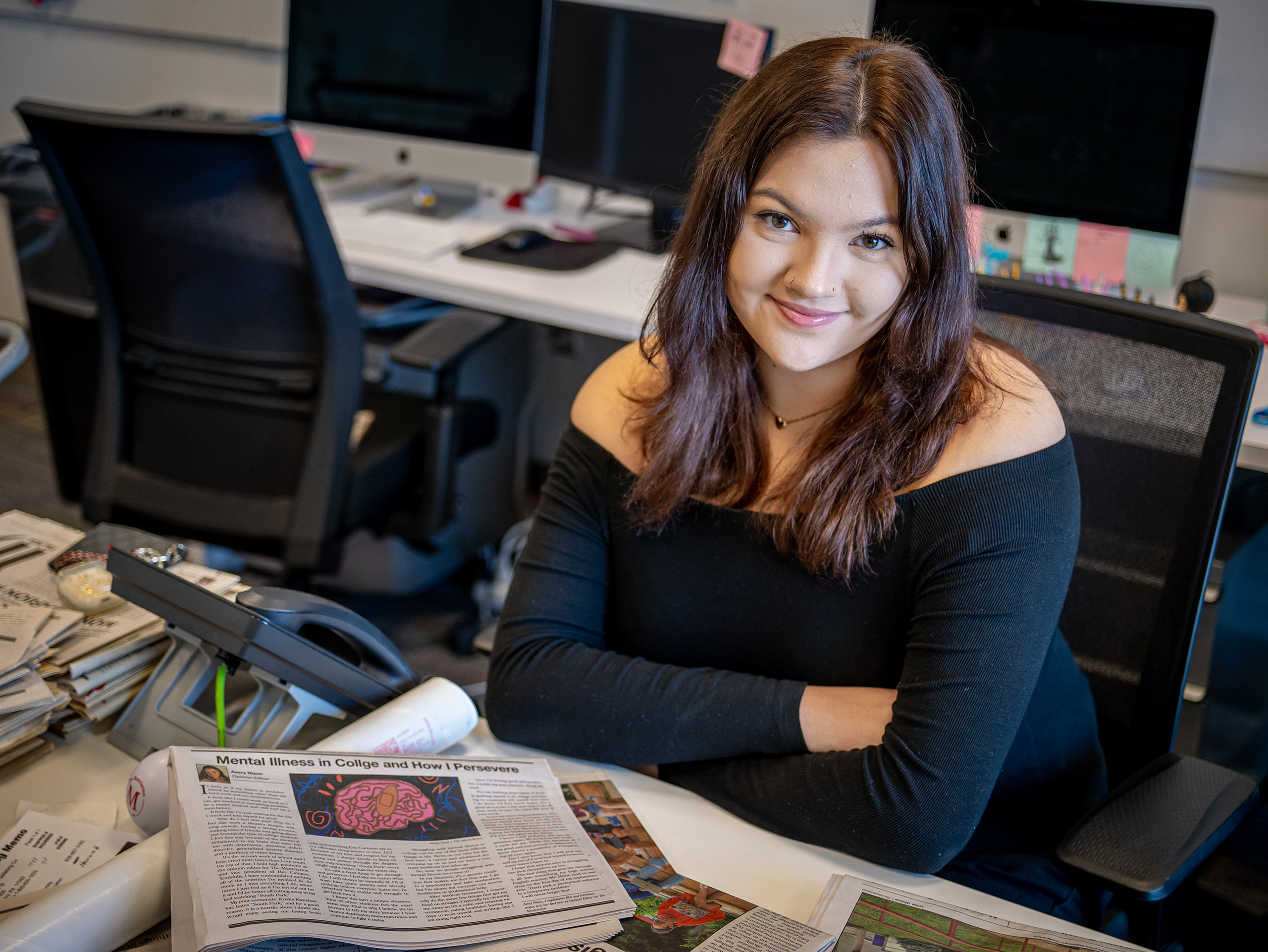
It's the type of story that a few years ago may not have been easily shared, but with the pandemic heightening mental health concerns on college campuses across the country, feelings of depression, anxiety and isolation are now easier to talk about, students and campus experts say.
As a result, a culture of wellness is being built into day-to-day campus life, with Montclair State University embracing a variety of approaches: everything from group therapy, peer counseling and telehealth to meet the demands for counseling, to arts and crafts, mediation events and petting furry animals to help students de-stress. In addition, faculty and staff are receiving resources and training to spot students in distress. This fall, the University introduced a new office to provide students with a deeper "sense of belonging" to the Red Hawk community, the aptly named Office of Student Belonging, to pull together vulnerable groups that research shows need additional support and better connections to fully immerse in the college experience.
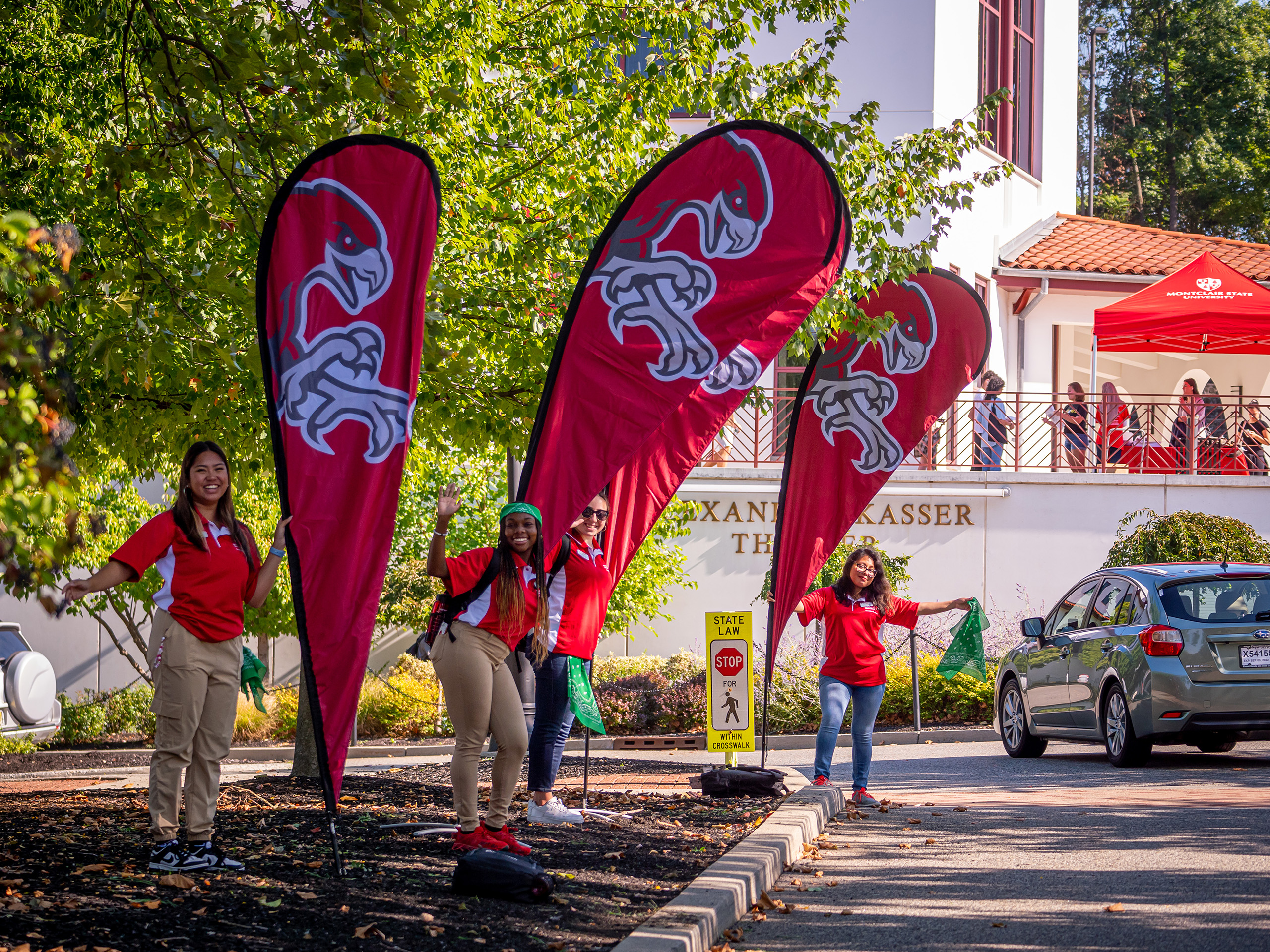
"Mental health issues are considered by many in higher ed to be at epidemic proportions," says Vice President for Student Development and Campus Life Dawn Soufleris. "Before the pandemic, we started to see a rise and the need to increase counseling and therapeutic services for students and provide more opportunities for students to be involved in campus life. Then the pandemic hit. What we've found with national research and certainly hearing from our own students, is that feeling of isolation, the feeling of anxiety and the diagnosis of anxiety, and just the difficulty of our students trying to figure out how to engage with others."
Nixon, a Film and Television major, says she has strategies to help her cope and is active in several student groups, including The Montclarion. "I usually don't talk about that kind of stuff with my friends," she says. "It's not because I think they can't help or that they don't care. It's just that I'm used to dealing with things alone."
Across the country, school leaders and experts say the pandemic exacerbated the already disproportionate mental health struggles of young adults between the ages of 18 and 24. Students juggling challenging coursework, relationships, economic strains and adjustment to campus life, are now also facing various forms of loss related to COVID-19.
"The conversation has been amplified," says Jaclyn Friedman-Lombardo, director of Counseling and Psychological Services (CAPS). "The pandemic emphasized this conversation about mental health as something that is just as important as other types of health issues."
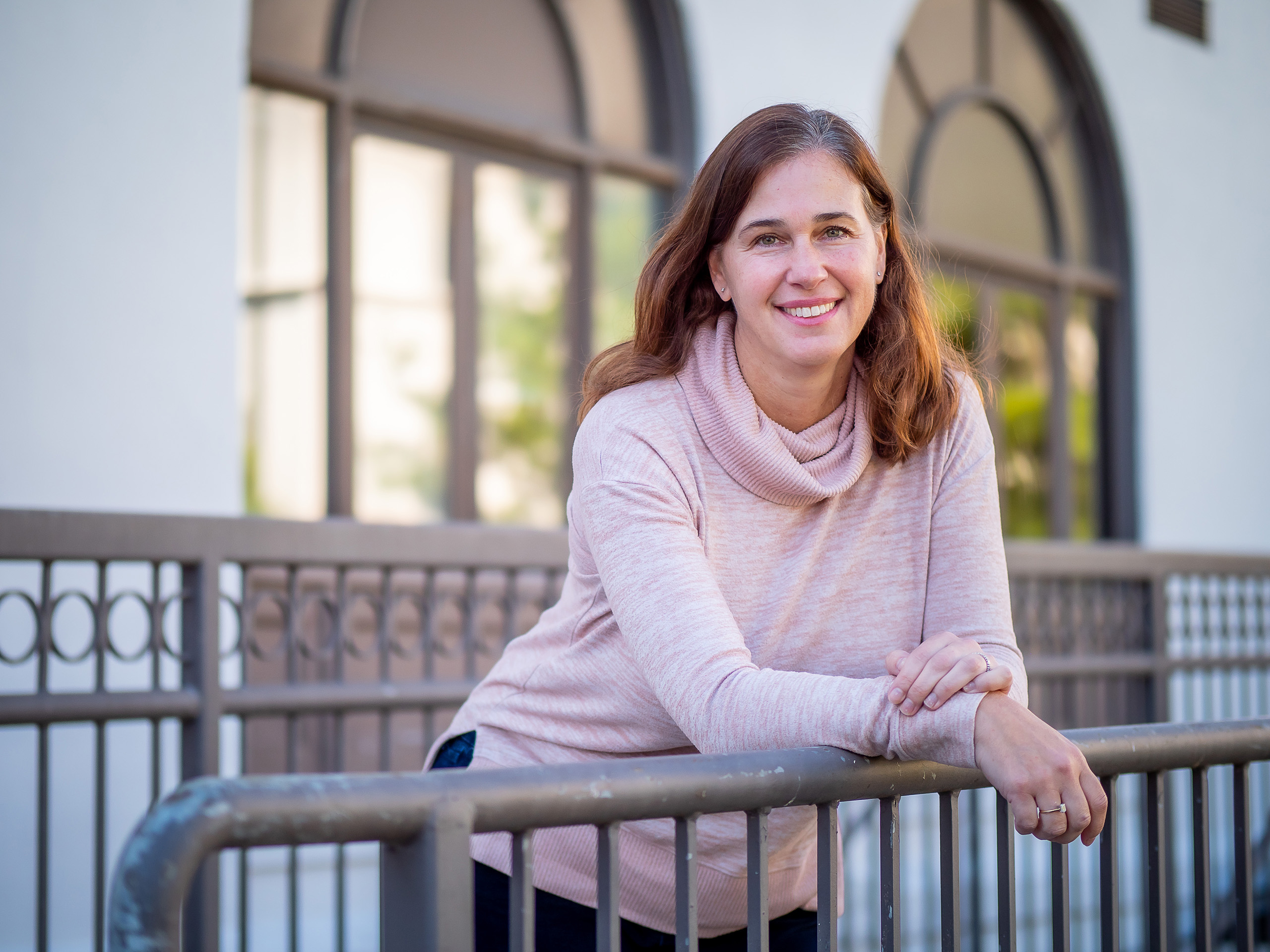
The University also offers clinical psychological services to the community and is contributing to the body of research, on both the impact of the pandemic and mental health. In October, Montclair hosted an interdisciplinary neuroscience conference on research into the potential use of hallucinogens in treating depression and PTSD. "This is a conference about solutions," President Jonathan Koppell told attendees. "Mental health and well-being is one of the most pressing issues of society today, and we need to be looking into every possible response available to us."
Last February, Montclair researchers published one of the first and largest studies to document the psychological, academic and economic impact of COVID-19 on Hispanic college students, and in August convened experts from the tri-state region to craft strategies to reduce harm for this vulnerable population.
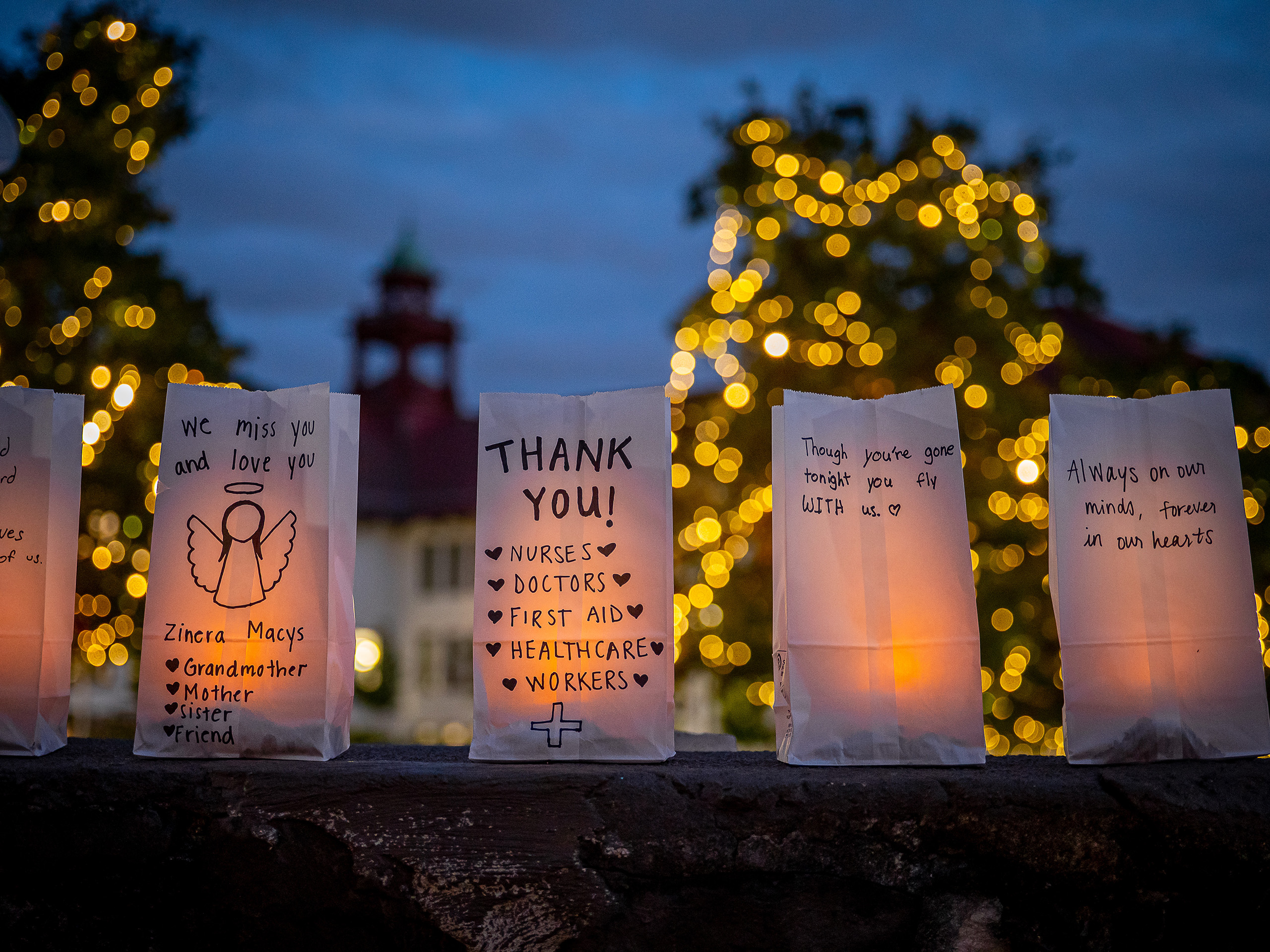
"Given how extraordinary these events are, it's important to document how it's affected college students," says Psychology Professor Jazmin A. Reyes-Portillo. "Young adulthood is a high-risk period for the onset of mental health problems, even without a major stressor like the pandemic. It's a period of immense growth and personal change. Add in COVID, and it's a one-in-100-year event that we felt was important to highlight."
The transition from high school to college can be challenging, "but particularly for first-generation students, where I think there tends to be more pressure either placed on them by themselves or by family or culturally," says Tiffany Ciprian, staff clinician and CAPS coordinator of outreach and prevention. "One of the positives of the pandemic is that it allowed for people to say that mental health matters and that it's OK to seek help."
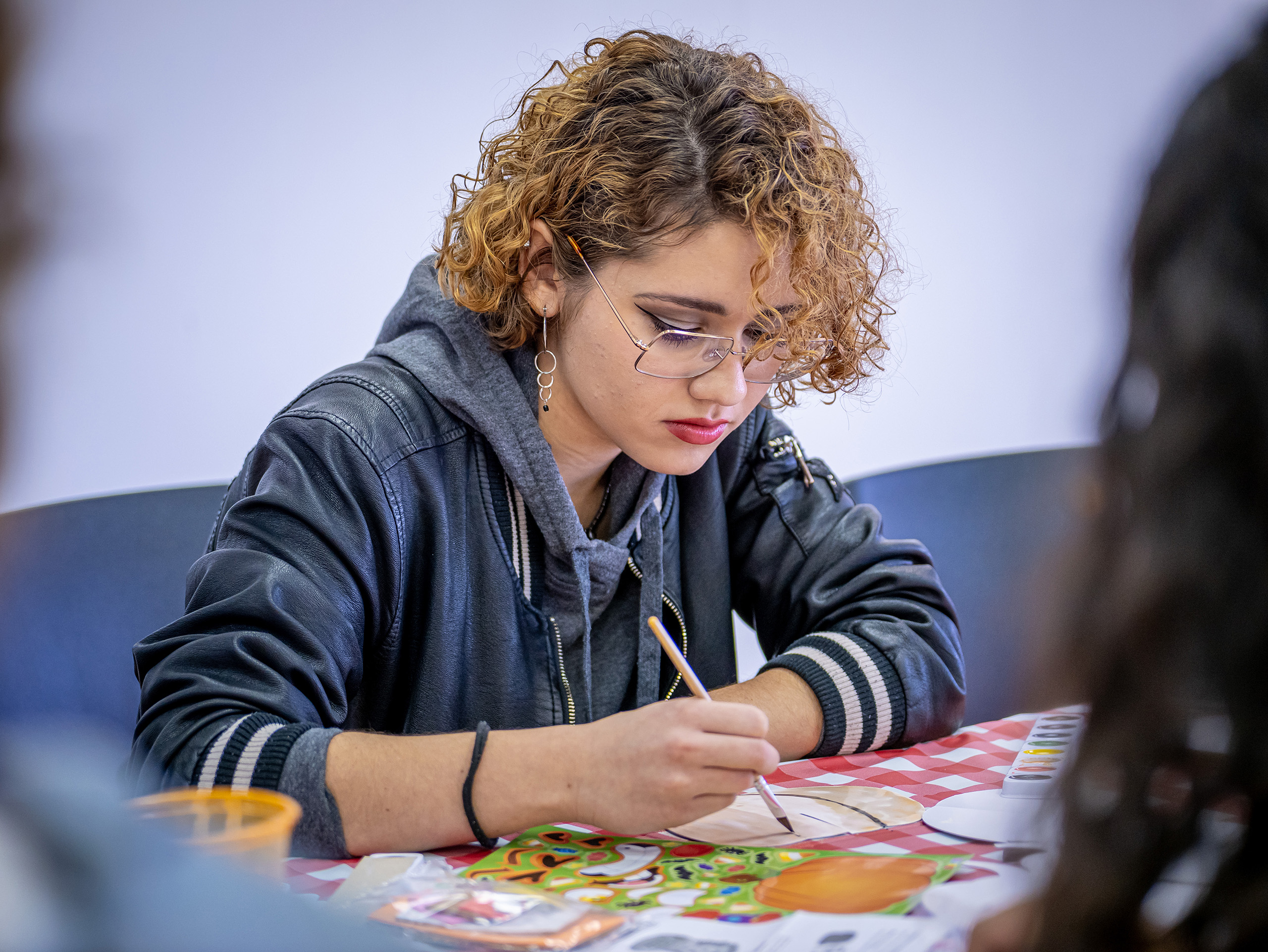
Olga Ramirez, a junior Education major and first-gen college student, turned to CAPS for support in meeting the demands of home, school and jobs (she's a substitute teacher and works in a retail store). She didn't feel she could talk with her parents since some of the pressure was coming from them.
"When you're having a problem or you're stressed out, you seriously feel alone," Ramirez says, noting that her freshman year was filled with lots of tears. "You feel there's no way that somebody else can understand what you're feeling." But when she heard other first-generation students talk about demands made of them by family members, "I was like, 'Oh my God, I'm not crazy,'" she says. "I knew that my parents were asking for too much, and I felt guilty for feeling that way."
Culture of Well-being
The University has prioritized mental well-being. Its Crisis Assessment Response and Education (CARE) team meets regularly to evaluate concerning behaviors, and CAPS has expanded the variety of services it offers, including group sessions, peer support and Let's Talk – the informal, one-on-one consultations with counselors offered both remotely and in person at different locations around campus. "We're trying to meet students where they are and offer a menu of options where students get to decide what works best for them," Ciprian says.
Ciprian oversees the CAPS Ambassadors, a select group of mostly undergraduate students who share an interest in mental health through their majors, personal experience or the experience of family members and friends. "It's impactful when we have ambassadors at our events, because students want to hear from other students. It helps with messaging and it really helps with destigmatizing when it's peer to peer," she says.
"Students come up to us at our events and break down what they're going through," says CAPS Ambassador Lisselo Santos Pichardo, a senior with a double major in Medical Humanities and Psychology. "I hear them out and tell them, 'It's OK, you got this.' And then I ask if they feel ready to start their journey? If they don't feel comfortable doing individual therapy, I tell them about Let's Talk and group therapy. I let them know there are other resources and that they don't have to take the big step yet."
Santos Pichardo understands because she has walked in their shoes. "I was that person once upon a time," she says, a first-gen student whose own stresses during the pandemic, academic struggles and family losses inspire her support for fellow students. "In my background, we never talked about mental health illnesses, we never talked about depression. It was a thing that if you needed any help, first, you do it on your own. You never reach out for help. And second, if you're going through mental health issues, you pray about it. I don't know about other students. I just know for first gen, it's hard."
Ramirez says she attended CAPS counseling during her freshman year. "I was stressed and sad most of the time. I was letting my insecurities stop me from interacting with others or even attending events."
Today, however, she no longer feels isolated. "I'm now involved on campus. I have friends on campus, and on my days off, I try to spend time with my sisters or friends," Ramirez says. "I keep myself occupied to avoid depression." In addition, she's taken up journaling as a coping mechanism. "I started journaling and it helped me with stress and on my days off I try to put school and work aside. I feel very happy and comfortable on campus."
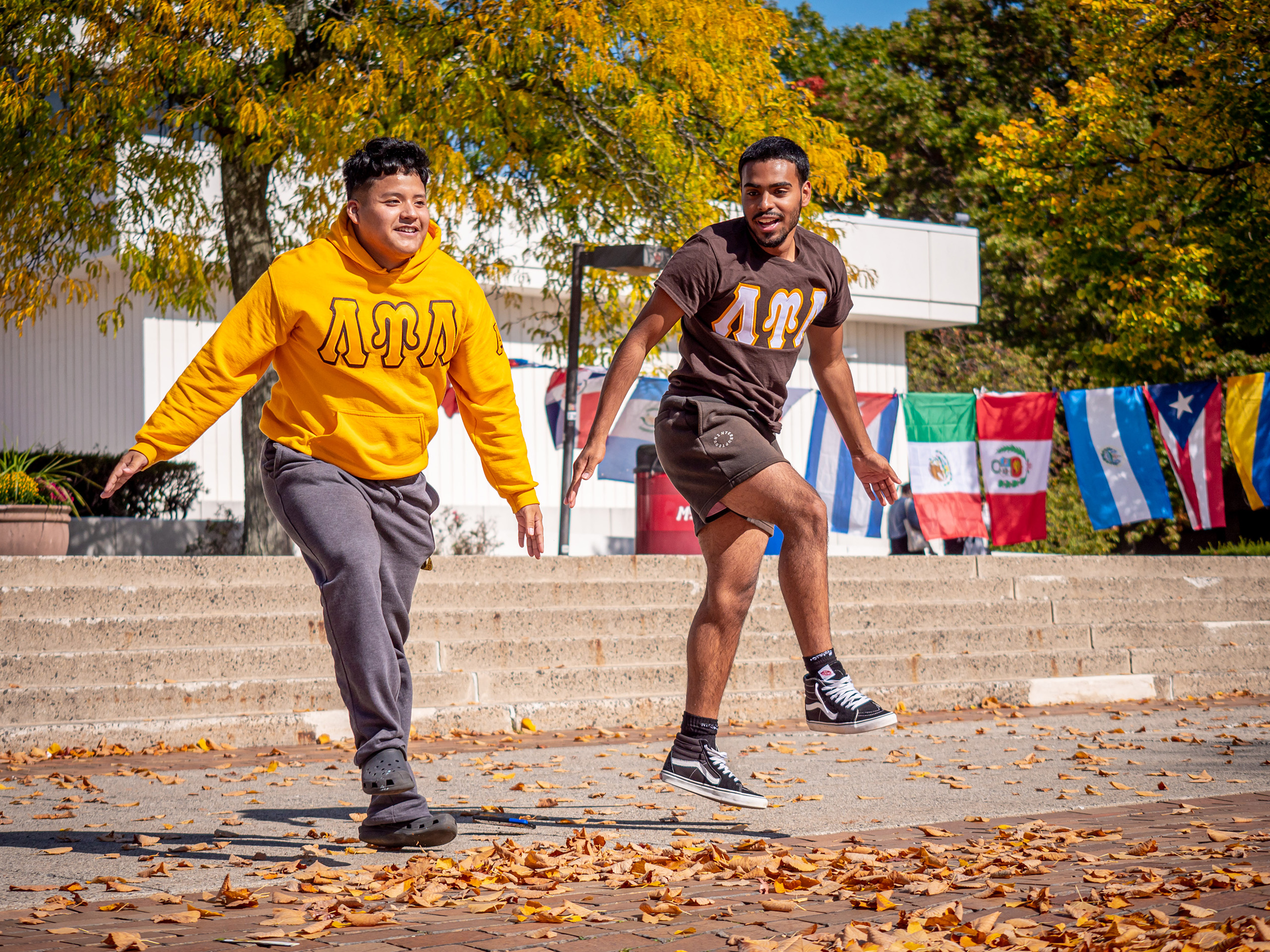
That sense of belonging is key. "Mental health isn't always about seeing a therapist or a psychiatrist; sometimes it's about becoming involved in your community. It's about making those connections, feeling you belong," Friedman-Lombardo told CBS Evening News for its Back to School series last year.
Montclair's culture of wellness is wide ranging. During the pandemic lockdown, staff and faculty volunteers called all 21,000 students to check on their well-being and lift their spirits. This fall, during Mental Health Awareness Week, CAPS Ambassadors ran a campaign on why mental health matters.
"Some of the challenges students face are adapting to being around more people, managing in the classroom versus virtually," says Staff Clinician Khabir Williams. Students who were isolated during the pandemic are seeking help with interacting with classmates. "How do I engage with people? How do I connect with people? I've seen a lot of that as well," says Williams.
Soufleris says, "It was clear from the get-go of the pandemic that we were going to have to approach things differently in terms of how we help, particularly our undergrads, by increasing opportunities for students to engage and connect and feel like they belong. The 'belonging' piece has become something of a buzzword in the field of higher ed, but it has some basis in diversity, equity and inclusion research. When students have a niche, they feel better about themselves, they feel more stable." To emphasize the point, the Division of Student Development and Campus Life this fall created stickers and pins that say, "You Belong Here."
“It was clear from the get-go of the pandemic that we were going to have to approach things differently in terms of how we help, particularly our undergrads, by increasing opportunities for students to engage and connect and feel like they belong.”
Responding to the longing for social interactions, the division has run nearly 700 programs and outreach activities since September – and students are attending in record numbers. Rocky's birthday party in October, traditionally a campus favorite, this year attracted a record 600 students, plus mascot pals from other universities. "We're seeing that with other types of events all over campus, whether it's attending a club and organization meeting, making a tote bag or painting," Soufleris says.
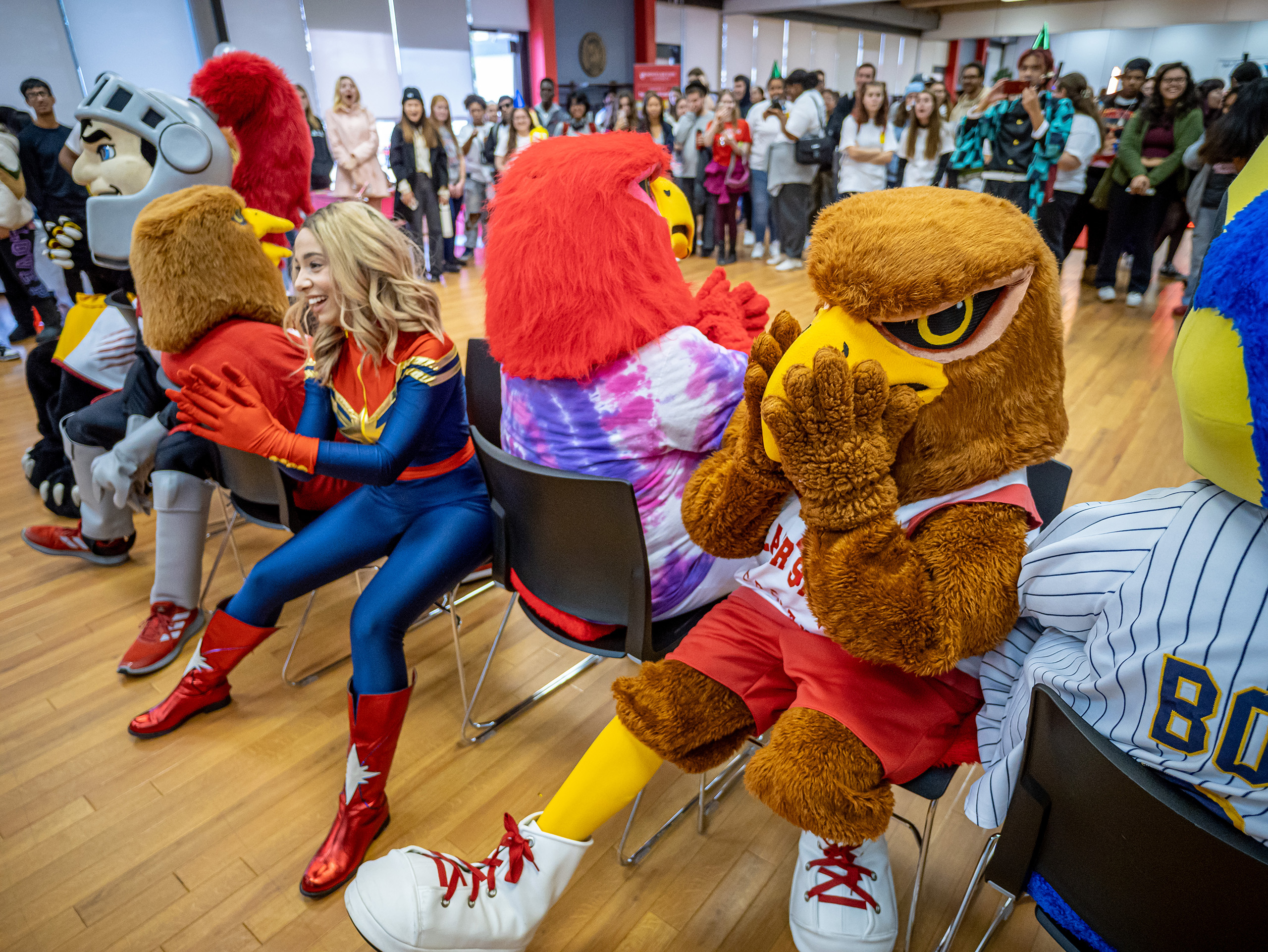
Sound Body, Sound Mind
Campus recreation also comes into play. Intramural sports, fitness classes and making s'mores around the fire pit are among the ways the University helps students engage with each other. "It ties into the greater notion of holistic student well-being," says Associate Director of Campus Recreation David Bryngil. "Being physically active, whether that's hardcore playing competitive sports or working out, even just walking, it has such a positive impact on your life. It helps clear your mind, it helps de-stress."
Extra attention is paid to health and wellness at the end of each semester. Miniature horses and puppies, a therapeutic project of the Office of Health Promotions, and events on nutrition, sleep and relaxation rooms help students cope with the stress of their final exams.
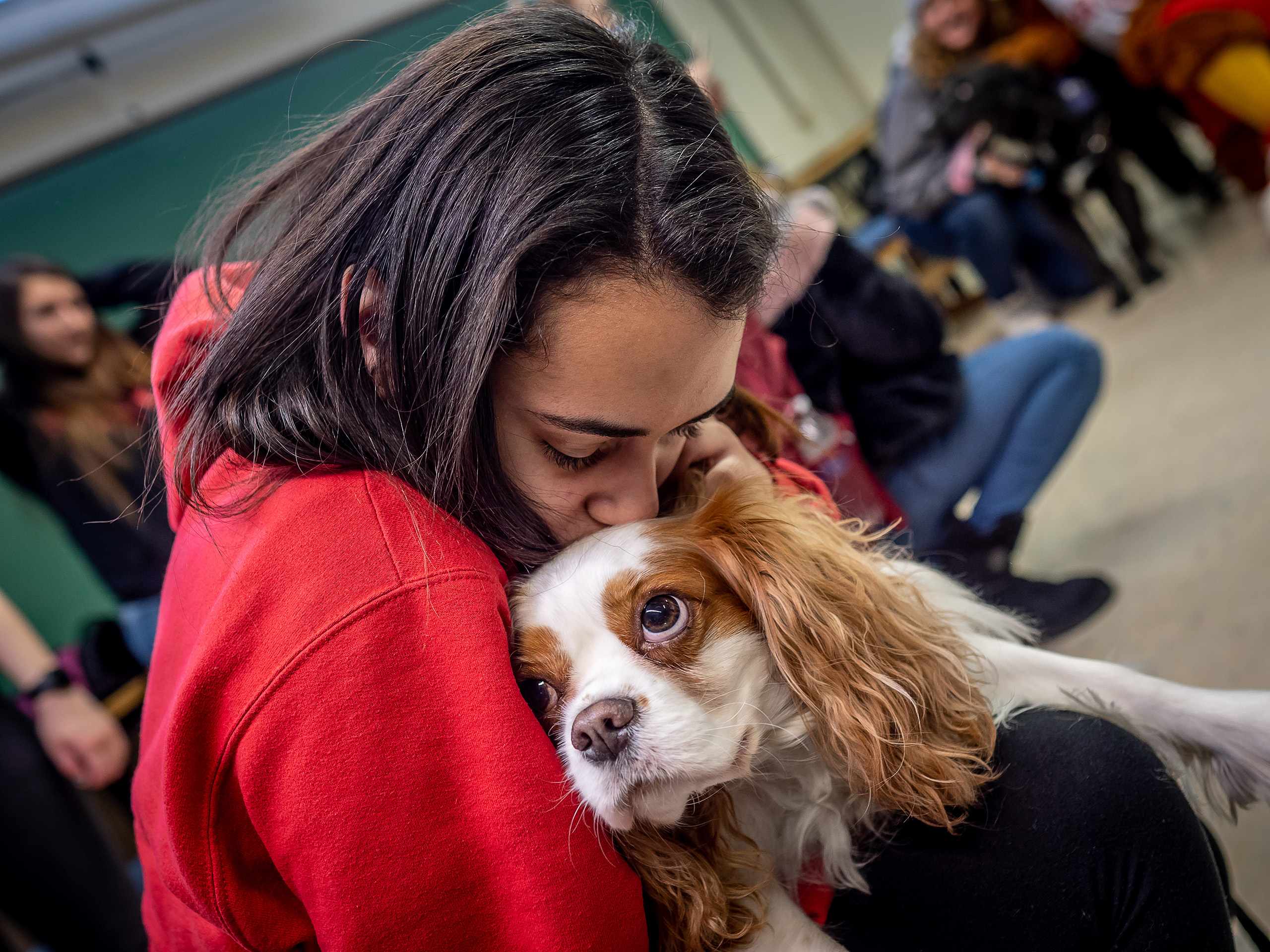
Telehealth has also grown. TAO Connect is a free online program available to all Montclair students, faculty and staff to help them manage depression, pain and anger, and improve communication and relationships.
Emily Isaacs, through her role as executive director of the Office of Faculty Excellence, addresses how faculty can help students with their trauma – as well as deal with their own. In workshops, she guides faculty members on recognizing it and connecting students with services.
"We can do some work not only as the instructor but also as the informed adult in the room," Isaacs told her peers at a recent session. "I don't have a background in public health, but I have a background in critical thinking and evidence-based reasoning. I'm not a doctor but I can help [students] discover resources and critically evaluate information."
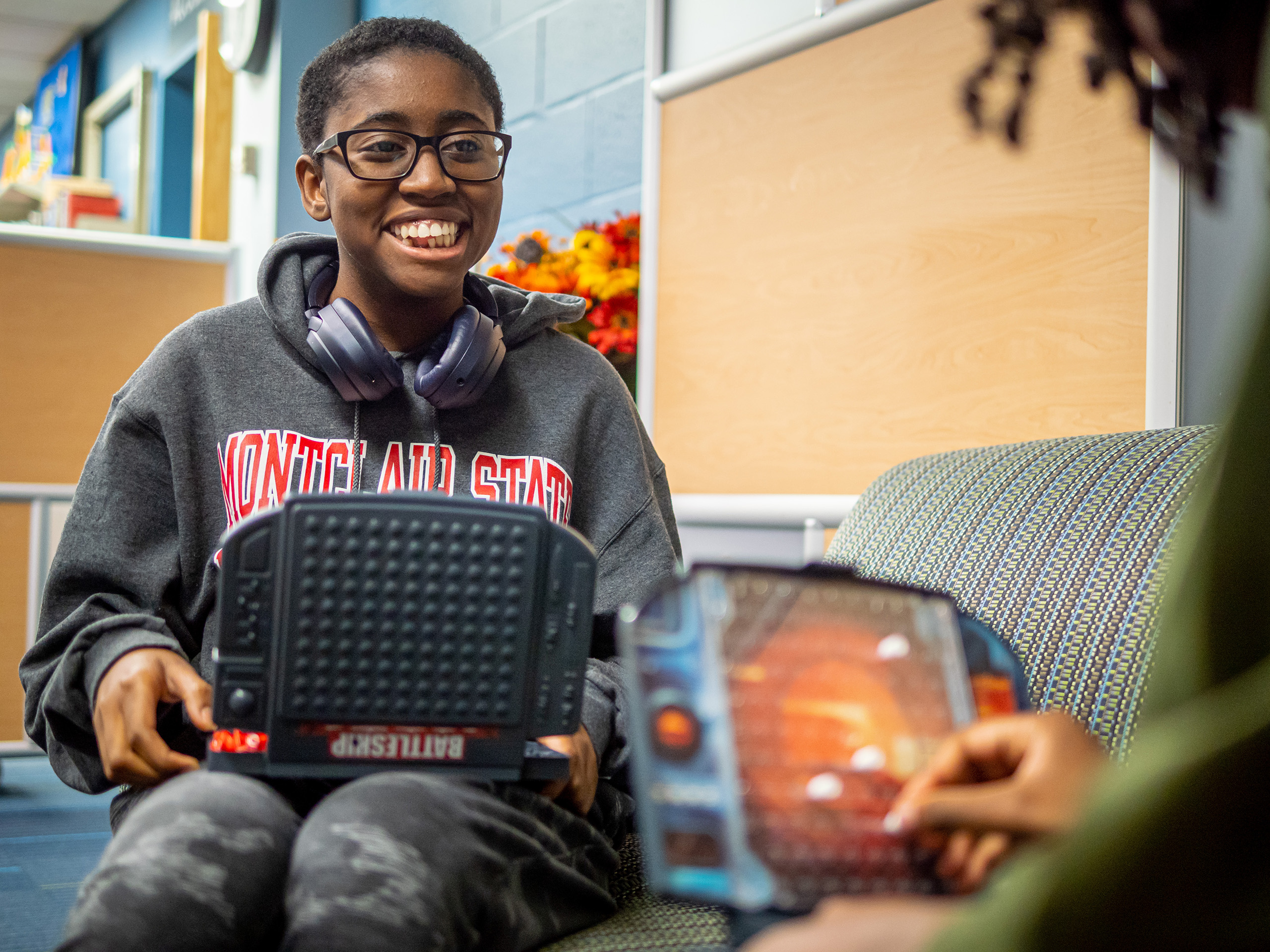
In November, Student Development and Campus Life professionals and staff from Enrollment Management and Academic Affairs took part in mental health first aid training to further branch out with faculty, staff and students on the signs of disorders, resources and what to say.
As an editor for The Montclarion, Avery Nixon decided to share her story on how she perseveres as part therapy, part confession. For her mental well-being, she dropped a difficult class and looks forward to evenings when she and her roommate indulge in a favorite television show. "I hope that anyone who is struggling can pick themselves up too," she says.
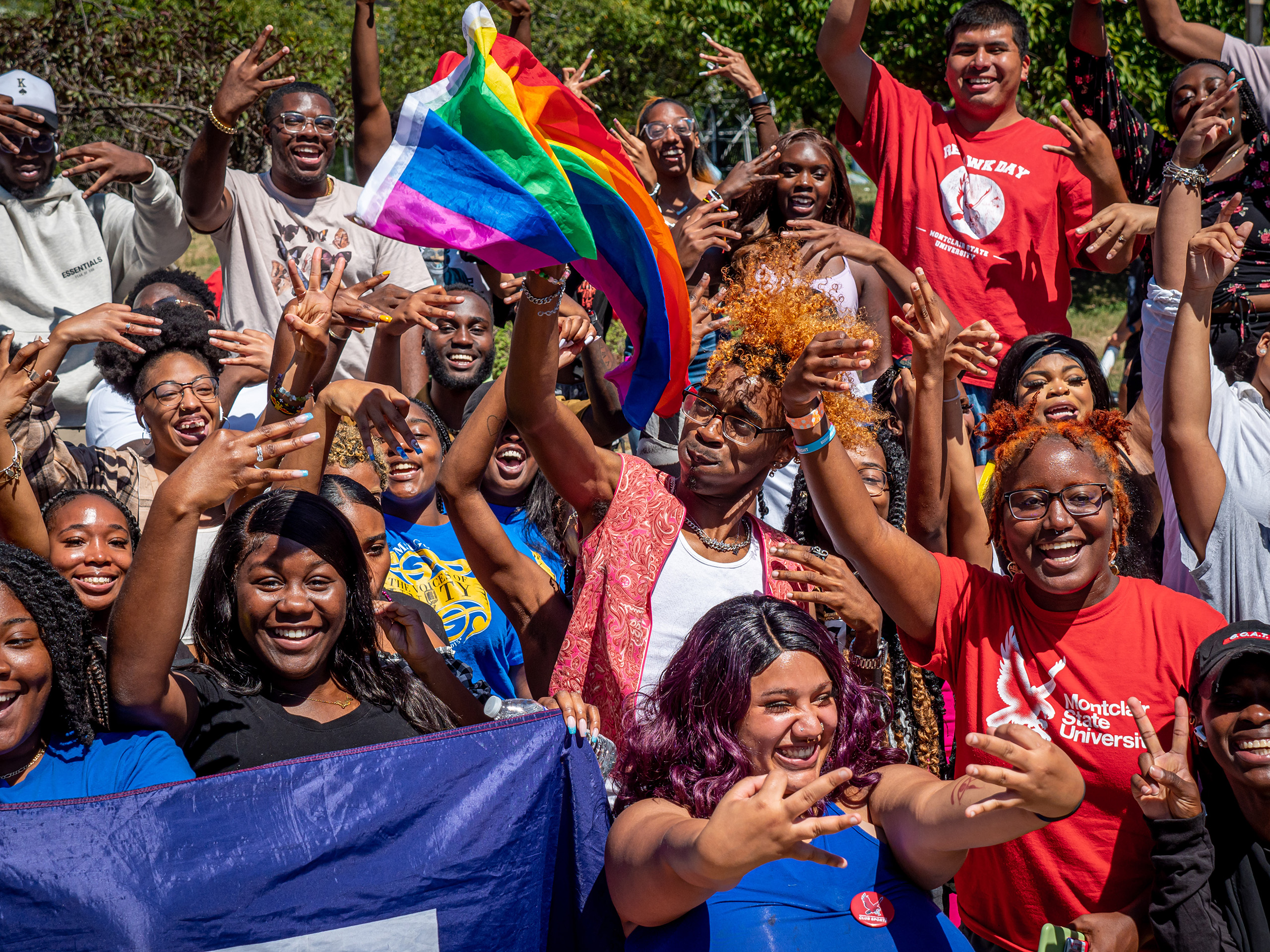
"We're going to have to be patient and supportive," Friedman-Lombardo says, "and know that these skills are going to be cultivated. But it's not going to happen overnight, and it's not going to happen just because we send them to school." For information on mental health resources offered at Montclair, visit the Department of Counseling and Psychological Services.
If you or a loved one is experiencing a mental health crisis or thinking about suicide, call or text 988, the new nationwide 988 Suicide and Crisis Lifeline for free, confidential support, 24/7.
Laura Griffin and Mary Barr Mann contributed to this article.